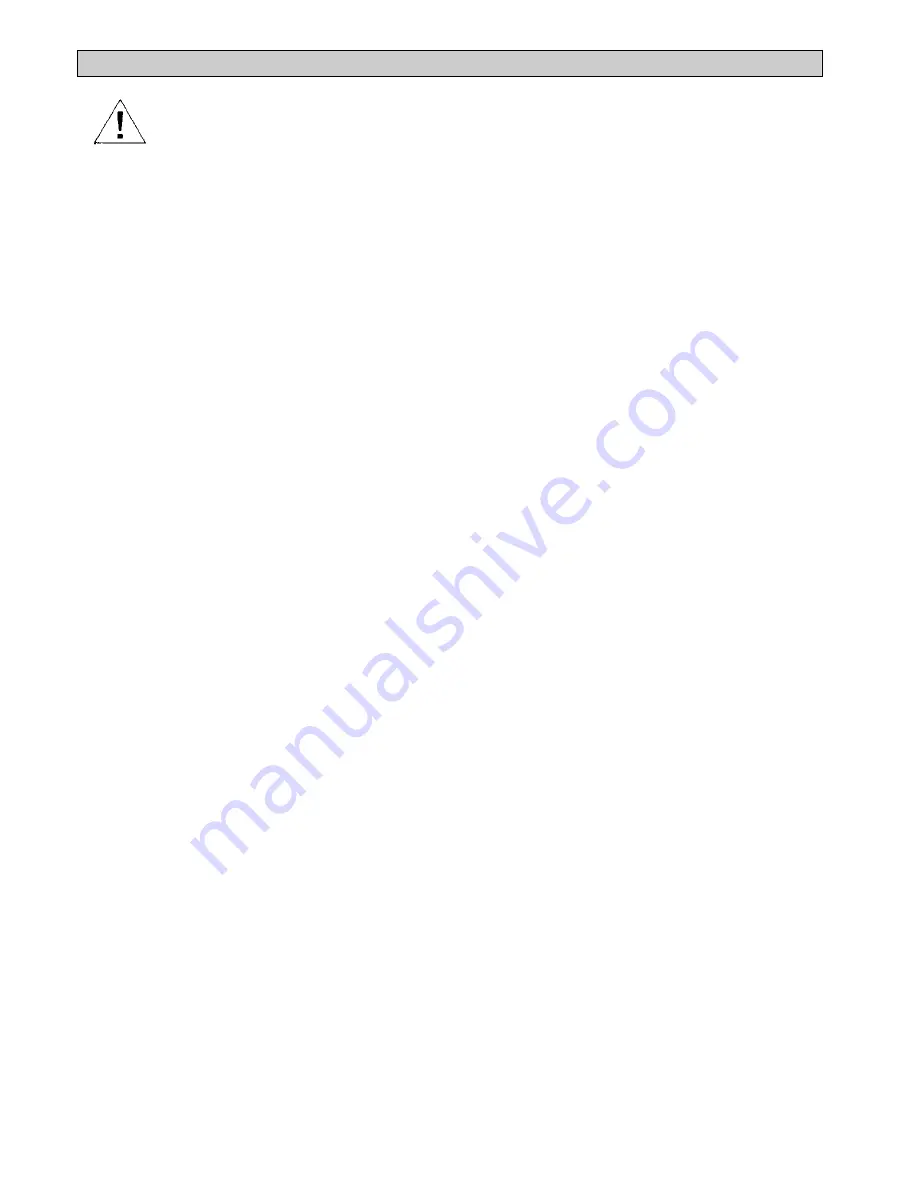
Safety Instructions
•
To ensure the best safety of the exerciser, regularly check on
damage and worn parts.
• If you pass on this exerciser to another person or if you allow
another person to use it, make sure that that person is familiar
with the content and instructions in these instructions.
• Only one person should use the exerciser at any given time.
• Before the first use, regularly make sure that all screws, bolts
and other joints are properly tightened and firmly seated.
• Before you start your work-out, remove all sharp-edged objects
around the exerciser.
• Only use the exercise for your work-out if it works flawlessly.
• Any broken, worn or defective part must immediately be
replaced and/or the exerciser must no longer be used until it has
been properly maintained and repaired.
• Parents and other supervisory persons should be aware of their
responsibility due to situations that may arise where the
exerciser has not been designed to tolerate children’s natural
playful instincts and interest in experimenting.
• If you do allow children to use this exerciser, be sure to take into
consideration to assess their psychological and physiological
development as well as their character. Children should use the
exerciser only under adult supervision and be instructed on the
correct and proper use of the exerciser. The exerciser is not a
toy.
• Make sure there is sufficient free space around the exerciser
when you set it up.
• To avoid possible accidents, do not allow children to approach
the exerciser without supervision, since they may use it in a way
for which it is not intended due to their natural play instinct and
interest in experimenting.
• Please note that an improper and excessive work-out may be
harmful to your health.
• Please note that levers and other adjustment mechanisms are
not projecting into the area of movement during the work-out.
• When setting up the exerciser, please make sure that the
exerciser is standing in stable way and that any possible
unevenness of the floor is leveled out.
• Always wear appropriate clothing and shoes suitable for your
workout on the exerciser. The clothes must be designed in a way
so that they will not get caught in any part of the exerciser during
the workout due to their form (for example, length). Be sure to
wear appropriate shoes suitable for the workout, ensure that
they firmly support their feet and have an anti-slip surface sole.
• Be sure to consult a physician before you start any exercise
program. He/She may give you proper hints and advice with
respect to the individual’s intensity of stress for the workout and
sensible eating habits.
• Be sure to set up the exerciser in a dry, flat surface and always
protect it from humidity if you wish to protect the surface against
pressure points and contamination. It is recommended to put a
suitable, non-slip mat under the exerciser.
• The general rush is that exercisers and training devices
are not toys. Therefore, they must only be used by
properly informed or instructed persons.
• Stop your workout immediately in case of dizziness,
nausea, chest pain or any other physical symptoms.
In case of doubt, consult your physician immediately.
• Children, disabled and handicapped persons should use
the exercise only under supervision and in the presence
of another person who may give support and useful
instructions.
• Be sure that your body parts and those of other persons
are never close to any moving parts of the exerciser
during its use.
• When fine-tuning the adjustable parts, make sure they
are adjusted properly and note the marked, maximum
adjusting position, for example of the saddle support,
respectively.
• Do not work out immediately after meals
Summary of Contents for E750
Page 17: ...BODYWORX BODY WORX...
































